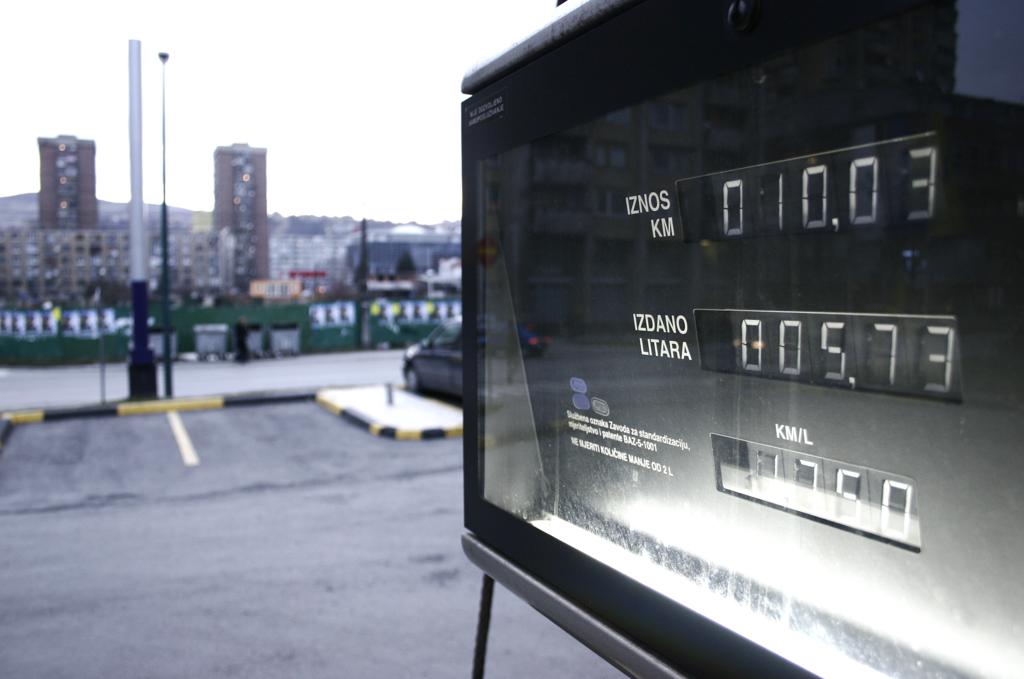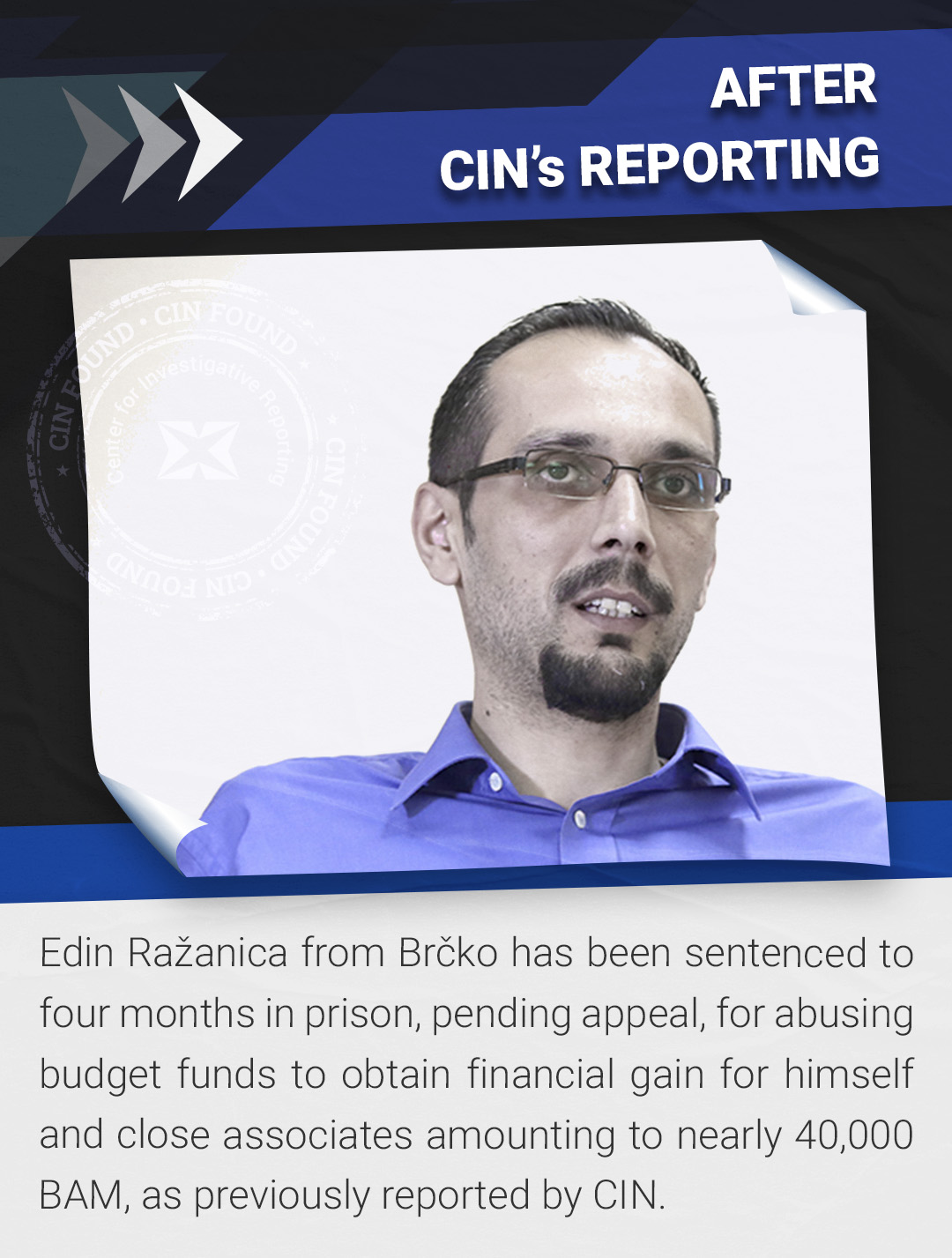Every year Bosnia and Herzegovina (BiH) collects more than 220 million KM in road-related taxes. But rather than using all this on BiH roads, which are among the most dangerous and underdeveloped in Europe, authorities are using the funds to support the administration.
A road maintenance tax on retail fuel and a fee drivers pay to register their cars are the two major sources of revenue for road maintenance and construction. The annual budget for roads in BiH could be much higher if the government passed a state bill to increase the road contribution on retail fuel, which is lower than nearly all other European countries. Currently, the government allots 15 pfennig per liter for roads.
‘Today’s 15 pfennig of tax per liter of sold fuel is a ridiculous figure and is not nearly enough for good road maintenance, not to mention the building of new ones’ said Nikola Šego, a counselor in the BiH Ministry of Traffic.
BiH spends one third less money on the roads compared to pre-war
Recalculated into today’s currency, the BiH Road Administration had 330 million KM a year from these taxes and fees in 1991.
The big drop in money collected is a consequence of a lower tax on the wholesale price of fuel and possibly greater smuggling of gas. In 2005, about 1.1 million tons of fuel was imported, almost on par with pre-war levels. But the lower tax meant that 110 million KM less came in for roads than would have before the war.

‘According to our estimates, BiH needs 1.5 million tons every year. The difference of 0.4 million tons can be attributed to the grey market, but the state has no mechanisms to monitor the actual fuel spending in BIH’ said Duško Bogdanović, head of the macro-economy department at the state Chamber of Foreign Commerce.
In addition, before the war some 150 people were employed in a single Road Administration. Today 200 people work in 14 bureaus, which deal with road issues. They do little coordination and the agencies are building, not consolidating, and adding more employees.
Citizens are frustrated with the state of roads and convinced they should be getting more for their money.
‘During car registration I pay a road fee of 100 KM a year as if I were driving over cotton. And they’ve dug up and left holes for a month so I ‘kick’ my car over them’ said a Sarajevo cabby Fahrudin Džido.
Not only are bad roads less safe, but they are also an obstacle to economic development, experts say.
Just who is accountable for road financing is disputed by officials at different government levels. Branko Dokić, minister of traffic and communications in BiH, blames entity governments for not implementing recommendations to raise road taxes, which his ministry put forth at the end of 2005.
‘This can be only solved with a state level bill and the responsibility for this rests with Dokić and Council of Ministers’ said Nedžad Branković, the Federation of BiH Minister of Traffic and Communications.
In an initial interview, Dokić told reporters from the Center for Investigative Reporting in Sarajevo (CIN) that road financing could not be tackled with road legislation. Several days later, the minister had a change of heart.
‘I was being led to believe by the BiH Tax Administration that the level of taxes should have been regulated by excise law, not by road legislation’ he said in a follow-up interview. ‘We decided to recommend an increase of taxes to 35 pfennig in the new road bill.’
Unlike in BiH, every time you buy a liter of fuel in Republic of Croatia, you will finance Croatian roads with 32 pfennig. That money goes straight into the accounts of the agencies who maintain and build roads, half to Hrvatske ceste, and half to Hrvatske autoceste. If BiH were to apply the Croatian model in BiH, about one-half billion KM a year would be available for improved roads.
Unaccounted spending of road taxes
Not only does BiH not set aside enough for road maintenance, but also some of what is set aside is used for other purposes.
The FBiH Bureau of Roads is unhappy with the distribution of funds and maintains that it gets just enough to pour salt during winter and patch bigger holes, according to Ljubo Pravdić, director.
Instead of an expected revenue increase, the recent introduction of a value-added tax (VAT) has resulted in a reduction in funds for the bureau.
Now road taxes end up on the state tax administration’s single account where they are not registered as a separate item. At the same time, distribution of funds has also changed.
‘The new way of revenue distribution brought about a decrease in our budget of some 17 million KM’ said Pravdić.
The state tax administration first pays foreign and domestic debt, administration costs and other operating costs of the state apparatus. The remainder of money is then divided among the entities and the District of Brčko. Every month the tax administration fights battles about the distribution of the money to these three governments.
Once they get the money, the three governments allocate it according to their own priorities, which include supporting bloated and redundant administrations and placating pensioners and other groups. What money is left is then distributed among the bureaus.
Dokić agrees. ‘Of course it’s fraud when the state redirects road tax money to other purposes. If the government is due on pension payments or whatever, it doesn’t care if the money comes from road taxes.’
Registration money
Unlike a tax on retail fuel, the road fee paid during car registrations is collected on the entity level. All the registration fee money then goes to the state-owned Putevi RS. The FBiH government distributes its money according to a set formula: 40 percent to the FBiH bureau, 35 percent to cantonal bureaus and 25 percent to municipalities.
The 14 ministries plus an equivalent number of bureaus (or in some cantons road departments under the ministries of traffic and communication) share the blame for inefficient spending of money, primarily because they lack coordination. Citizens often witness multiple reconstructions of the same roads.
The main road in Sarajevo from Skenderija to Baščaršija, for example, which was renovated in 2006, will be dug up once more. Fifty-year-old water and sewage pipes need to be replaced, work that might have been anticipated and coordinated with road work. Taxpayers routinely pay for needless, multiple reconstructions.
Responding to reporter’s request, a clerk with the FBiH Bureau of Roads said they didn’t even have the telephone numbers of the cantonal bureaus.
Speaking on the issue of poor coordination, minister of traffic and communication in Sarajevo Canton Ljiljana Sakić said: ‘I hear about new road works from newspapers.’

‘Bloated administration and unnecessary money spending can be stopped in just one way’ says Besim Mehmedić, director of the Sarajevo Canton Bureau of Construction. ‘Unify all funds in one place, because the way it is now, there are too many safes and too many people who are calling the shots.’
Roman Mazi, director of the Slovenian company Petrol BiH, agrees.
‘There are 180 ministries of whom none knows what the rest of them are doing. In this goulash traders are floating somehow, but the government has the hardest time to find its feet.’
There’s money for oil traders but not for roads
Many officials agree that BiH legislators are strongly influenced by the oil lobby and that the oil trade is a lucrative business here.
‘The Council of Minister either has no will or skill to bring order in the oil market which is why the chaos reigns here’ said Bogdanović.

One of the symptoms of this chaos is that the tax rate on retail fuel in BiH is one of the smallest in Europe. Oil traders enjoy profit margins much higher here than their peers in rest of Europe. Entity governments passed in 2000 a bill granting a liberal price ceiling on oil and oil derivatives that left it up to traders to decide on prices.
Esad Česičkić, executive manager of Junuzović-Kopex company, said: ‘Our margin currently is 25 pfennig per liter of Euro diesel. An OMV gas station close by has a margin of 36 pfennig, while most of the oil traders in my vicinity have set 32 pfennig per liter.’
Other major oil companies operating in BiH like INA and Zovko didn’t want to comment on the level of their margins calling it confidential.
Asked about the power of the oil lobby, Pavica Jurišić general manager of Zovko said , ‘I don’t know anything about it, nor will I comment.’
In contrast to BiH traders, the web site of ARAL, a German retail fuel marketer, shows that its profit per liter of gasoline was 20 pfennig in the beginning of the year or 12 pfennig less than what local oilmen make. In addition, road contributions in the European Union are much higher than here. They are not fixed, but pegged to the retail price on the market.
Oilmen point to yet another symptom of chaos. They say that some fuel is not being taxed.
‘When BiH included oil in the free trade agreement with Croatia, it relieved Croatia from paying 11 percent of oil tax thus bringing a 80 million KM loss to the country. That money could have been used for roads’ said Mazi.
Asked about this, Minister Dokić said: ‘There you go. We’re talking about authority and other trifles instead of dealing with the matters of life.’
This project was completed with financial assistance from the Open Society Fund BiH











